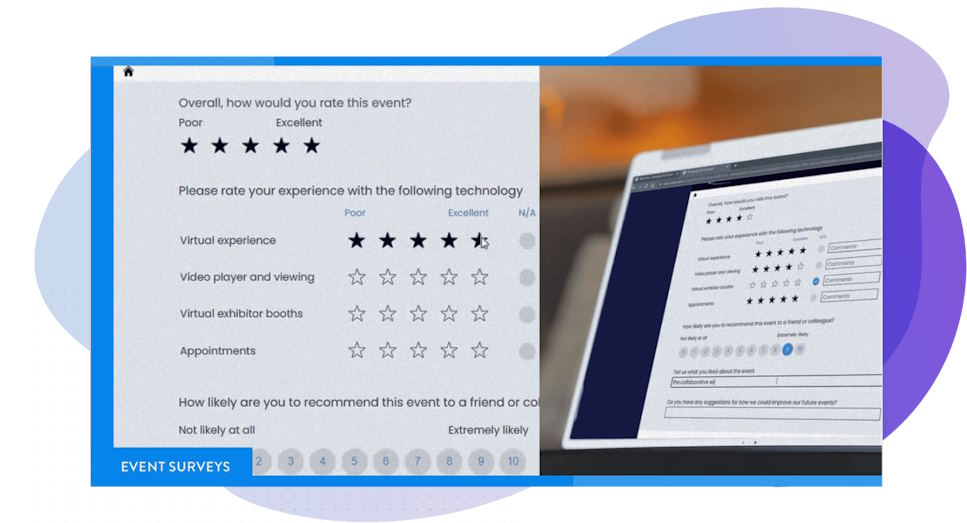
The Role of Feedback and Evaluation in Improving Future Events
Events hold a profound significance in our lives, serving as platforms for networking, learning, celebration, and much more. Whether it’s a corporate conference, a music festival, or a community gathering, the success of an event hinges not only on meticulous planning but also on the ability to adapt and improve based on participant feedback. In the realm of event management, feedback isn’t merely a formality; it’s the compass guiding organizers toward delivering more impactful and memorable experiences.
Analyzing Feedback and Evaluation Data
Techniques for Analyzing Feedback Data Effectively
Effective analysis of feedback data is crucial for deriving meaningful insights that can drive improvements in future events. One technique is to categorize feedback based on themes or topics, allowing organizers to identify common issues or areas of strength. Utilizing quantitative methods such as surveys or rating scales can provide numerical data for easy comparison and statistical analysis. Qualitative techniques like sentiment analysis or word cloud generation help capture the nuances of participants’ opinions. By combining both quantitative and qualitative approaches, organizers can gain a comprehensive understanding of attendee experiences.
Identifying Patterns and Trends
Identifying patterns and trends within feedback data unveils valuable information about participants’ preferences and behaviors. Organizers can use data visualization tools such as charts, graphs, and heatmaps to identify recurring themes or changes over time. Patterns may emerge in demographic groups, session attendance, or satisfaction levels across different aspects of the event. By recognizing these patterns, organizers can tailor future events to better meet attendees’ needs and expectations.
Extracting Actionable Insights for Improvement
The ultimate goal of analyzing feedback data is to extract actionable insights that inform decision-making and drive continuous improvement. By synthesizing findings from feedback analysis, organizers can prioritize areas for enhancement and develop targeted action plans. For instance, if feedback indicates dissatisfaction with session topics, organizers can adjust the program to better align with attendees’ interests. Similarly, positive feedback on certain aspects of the event can be amplified or replicated in future iterations. By extracting actionable insights, organizers can ensure that each event iteration builds upon the successes and addresses the shortcomings of previous ones, ultimately delivering a more satisfying experience for attendees.

Implementing Changes Based on Feedback
Importance of Acting on Feedback
Feedback serves as a compass guiding event organizers toward delivering experiences that resonate with attendees. However, its true value lies in the actions taken based on that feedback. By actively listening to participant suggestions and concerns, organizers demonstrate a commitment to continuous improvement and a genuine desire to meet attendees’ needs. Ignoring feedback not only squanders an opportunity for growth but also risks alienating participants and tarnishing the event’s reputation. Therefore, acting on feedback is not just beneficial; it’s imperative for the success and longevity of any event.
Strategies for Incorporating Feedback into Future Event Planning
Incorporating feedback into future event planning requires a systematic approach that ensures constructive input translates into tangible improvements. One strategy is to establish a feedback loop, wherein organizers solicit feedback at various touchpoints throughout the event lifecycle, from pre-event surveys to post-event evaluations. Additionally, utilizing technology such as event management software or mobile apps facilitates real-time feedback collection and analysis. Organizers should also create channels for open communication, allowing participants to express their thoughts and suggestions freely. By integrating feedback into the event planning process, organizers can iteratively refine their strategies and deliver more engaging and satisfying experiences.

Continuous Improvement Culture
Fostering a Culture of Continuous Improvement
Creating a culture of continuous improvement within the realm of event management requires a mindset shift where feedback is embraced as a catalyst for growth rather than viewed as criticism. It entails fostering an environment where experimentation and innovation are encouraged, and mistakes are seen as learning opportunities. By promoting transparency and accountability, organizers can instill a sense of ownership among team members, empowering them to actively seek out feedback and contribute to the evolution of event planning processes.
Encouraging Stakeholders’ Participation in the Feedback Process
Stakeholder involvement is paramount in cultivating a robust feedback culture. Event organizers should actively engage participants, sponsors, vendors, and staff in the feedback process, recognizing that each stakeholder group offers unique perspectives and insights. Employing diverse feedback channels such as surveys, focus groups, and one-on-one interviews ensures inclusivity and allows stakeholders to voice their opinions effectively. Moreover, fostering open communication channels facilitates ongoing dialogue and collaboration, strengthening relationships and fostering a sense of community around the event.
Long-term Benefits of Embracing Feedback-Driven Improvement
Embracing feedback-driven improvement yields myriad long-term benefits for event organizers and participants alike. By continuously refining event experiences based on feedback, organizers can enhance attendee satisfaction, loyalty, and retention. Moreover, a commitment to feedback-driven improvement fosters a reputation for responsiveness and adaptability, attracting new participants and stakeholders. Additionally, by identifying and addressing areas for improvement proactively, organizers can mitigate risks and optimize resource allocation, leading to greater efficiency and cost-effectiveness in event planning. Ultimately, embracing a culture of continuous improvement positions events for long-term success and sustainability in an ever-evolving landscape.